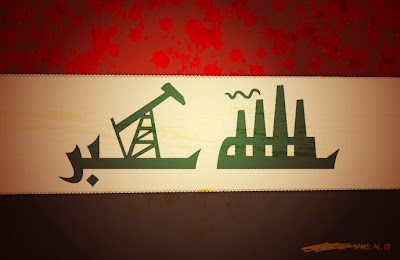
An Emerging Power?
The Council on Foreign Relations recently published an interesting memorandum titled “Renewed Violence in Iraq.” The contingency report, authored by Douglas Ollivant of the New America Foundation, offers suggestions as to how the U.S. can help the Iraqi government cope with myriad internal security threats.
Ollivant begins by identifying the major social/national fault lines that hector the body politic in Iraq: Shi’a-Sunni; Arab-Kurd, and intra-Shi’a. By now, they should ring familiar. The author notes that:
Either of these contingencies could spark the other, as political declarations enflame ethno-sectarian tensions, or ethno-sectarian conflict spurs political declarations of independence or withdrawal from the political system. To complicate matters, turmoil in the region could also spill over into Iraq and exacerbate internal tensions.
The last line stuck out to me. As an interested academic-type and foreign policy observer, I’m slightly staggered by the lack of attention paid Iraq even before America’s troop withdrawal, back in December 2011 – particularly given Baghdad’s public discomfort at instability in Syria, Egypt, etc. As Ollivant notes, “The United States has a significant stake in helping Iraq overcome these challenges; Iraq is a critical state within a critical region.”
As we know, the violence that simmers was triggered by invasion, and accelerated by mistakes made by coalition officials, in its aftermath. As such, Ollivant suggests U.S. support for improving intelligence cooperation between the two countries, reinforcing the Iraqi electoral process, and cultivating friendly, bilateral relations between Iraq and Turkey.
To what end, you ask? Iraq remains an unpleasant memory — an ultimately unpopular war, best recalled by a false-start “Mission Accomplished” that bled American blood and treasure on the streets of Baghdad and Basra, Fallujah and Tikrit.
Well, Ollivant summates beautifully:
Iraq is also not only an influencer but a participant in the “Arab-Persian” axis. It is primarily an Arab country like much of the Middle East, but it has a Shia majority like Iran that exercises political control. Similarly, Iraq is a frontline state in the conflict between moderate Islam and al-Qaeda, a battle for ideas that will continue to be of major import in the fight against terrorism. Iraq has a significant minority Kurdish population, a distinction it shares with the otherwise dissimilar Iranian, Turkish, and Syrian regimes. With the world’s fifth-largest oil reserves, Iraq’s output can stabilize or roil markets, directly affecting the U.S. economy. As Iraq moves back into the Organization of Petroleum Exporting Countries (OPEC) quota system, how it aligns within the organization—whether with the stability-oriented bloc of Saudi Arabia and the Gulf States or with the more ideological bloc led by Iran and Venezuela—will have clear implications for U.S. energy policy.
An excellent aggregate of America’s enduring interest in the future of Iraqi governance and energy output.
But, Ollivant prefaced that statement with an interesting aside. He notes that Iraq has potential as an “emerging regional power.” This is true. As I wrote back in July, Iraqi oil production now outpaces Iran. Concurrently, Iraq’s parliamentary democracy (although fragile) and quietest Shi’a tradition (as embodied by Grand Ayatollah Ali al Sistani) remain obstacles to the brittle legitimacy of Iran’s titular theocracy.
Since before the 2003 invasion, critics of the president’s initial war aims were shouting that the creation of democracy in Iraq would simply ensure increased Iranian influence. Now that the country has steadied, slightly, it’s interesting to consider the influece Iraq could have to her east, given delicate American assistance, regional partnerships (e.g., with Ankara) and electoral stability.